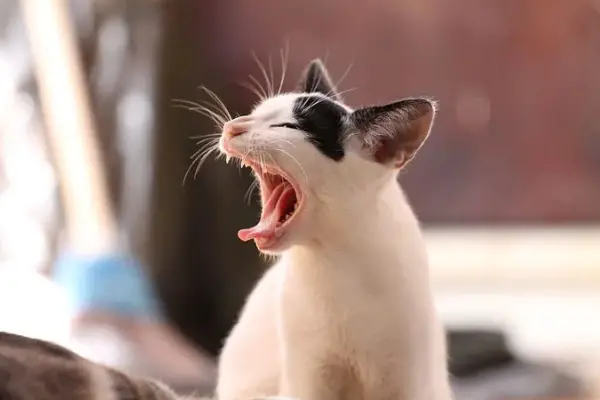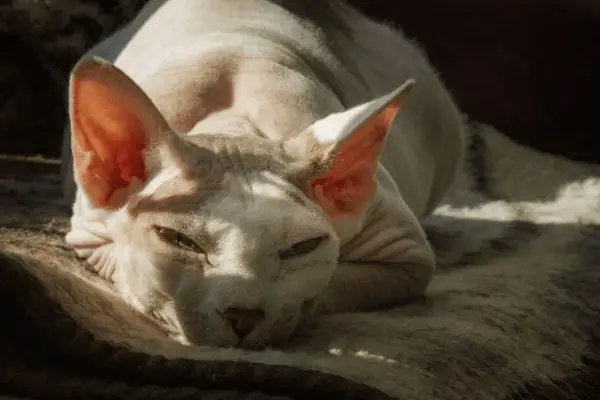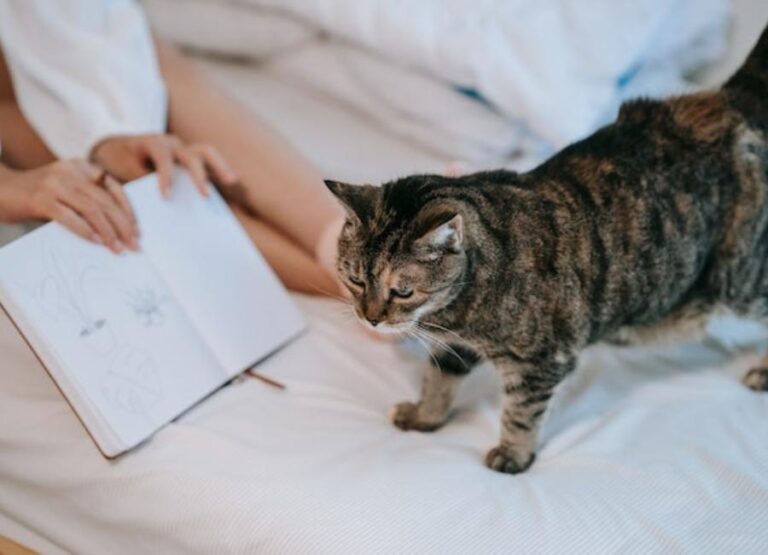How Long Do Bengal Cats Live: 6 Factors To Consider

Most domestic cats live longer than others, so how long do Bengal cats live, this is precisely what we will be discussing in this post, so keep reading.
There is a predetermined or average range of years that a Bengal cat may live which we will discuss, but many things can affect those years.
We will discuss these aspects while emphasizing typical methods to support a Bengal’s long, healthy, and happy life.
First, let’s get down to why you are reading this post by answering your question!
How Long Do Bengal Cats Live
On average, a healthy and purebred Bengal cat will live for 13 to 15 years or more if properly cared for.
Regular medical examinations, balanced food, and basic care may all extend a Bengal cat’s life, allowing it to live for 13 to 15 years or longer on average.
Despite having a wide range of factors that affect their lifespan, Bengal cats may have their owners’ preferences impact how long they live.
Let’s look at ways to improve the quality of life and longevity of Bengal cats.
How to help a Bengal cat live longer
Even though there is a set or average range of years a Bengal cat can live, there are many ways we can influence these years which are as follows:
1. Getting a healthy breed of Bengal cat
Getting your Bengal cat from a reputable breeder is one of the most common ways you ensure your Bengal lives as long as he can.
Bengal cats can have some genetic illnesses that can be transferred to their kittens, if you get your Bengal from a reputable breeder you stand a chance of avoiding it.
So make sure while getting your Bengal you request for medical information or history of the parent breed.
If you are sure the parents of the Bengal are cleared that will be a good start-off point to insuring your Bengal live healthy and happy.
2. Schedule regular medical check-ups
Make sure your Bengal cat is up to date on all necessary vaccinations and has got all of them.
Make yearly examinations for your pet a top priority. Your Bengal cat will live longer if any health concerns are caught early.
This facilitates the early detection of potential issues and the delivery of preventative care.
The best way to monitor your Bengal cat’s health is to take her to the vet for routine examinations.
3. Be alert for signs of illness
Numerous illnesses, many of which have early warning signs, might affect Bengal cats.
So, if your Bengal cat starts acting strangely, take him to the doctor as soon as possible.
Monitoring your signs of illness will help you spot any impending problems.
4. Provide high-quality cat food
Bengal cats may easily be helped to live longer lives by feeding them high-quality Vet recommended cat food.
Feeding your Bengal cat nutritional food is essential since deficient nutrition is one of the main causes of health problems in cats.
Make sure they eat a diet full of protein, vitamins, and minerals.
You may feed your Bengal cat both dry and wet food because they are both nutritious.
5. Keep your Bengal cat indoors
Bengal cats have distinctive traits, and we are aware that they like discovering new areas.
Permit your Bengal cat to enter your backyard, porch, or front garden only while you are there.
Bengal cats like outdoor play. On the other hand, your cat is always a danger of assault by stray or other animals.
Your Bengal cat might ingest something harmful or get a sickness.
It is thus advisable to keep your Bengal cat indoors, and if it must be outside, make sure it is under supervision.
6. Protect your Bengal cat from anxiety, stress, and depression
Bengal cats are affectionate animals who like being with their owners.
Bengal cats, however, may experience depression if left alone for an extended amount of time unattended to.
Your Bengal cat’s lifetime might be drastically reduced by constant anxiety, stress, and grief.
As a consequence, you might be able to lengthen the life of your Bengal cat by avoiding unnecessary stress.
To keep your Bengal cat happy and active, never forget to love and care for them.
Your Bengal cat may live longer if you give them the correct attention and care.
Read more: Can Bengal Cats Be Left Alone: 7 Tips To Keep Them Busy.
Potential factors that influence the life expectancy of Bengal cats
There is a predetermined or average range of years that a Bengal can live, although there are several factors that affect these years, including the following ones:
1. Lack of medical check-ups
Bengal cats are unable to communicate when they are ill, so you need to always keep an eye on symptoms.
On the other side, Bengal cats are renowned for keeping their unfavorable emotions to themselves.
Sometimes it is too late to help a Bengal cat when its owner notices there is a problem.
Bengal cats in particular require routine visits to the vet.
This gives you the best opportunity of identifying any issues quickly enough to address them.
Make sure your Bengal cat is up to date on all necessary vaccinations and has got all of them.
Make yearly examinations for your pet a top priority. This facilitates the early detection of potential issues and the delivery of preventative care.
2. Living conditions
You shouldn’t let your Bengal cat outside unsupervised for a number of reasons.
Their longevity is impacted by the external threats they face, including traffic accidents, pollution, infections, and animal assaults.
Do you know that in certain cities, automobile accidents are one of the leading causes of pet death?
If you let your Bengal cat spend too much time outside, it might put them at risk from a range of new threats.
They might consume poison, become sick, or be attacked by dogs or other animals.
3. Poor nutrition
A Bengal cat’s nutrition has a big impact on how long it will live.
We advise discussing this with your veterinarian in order to provide you with the right nutrition in light of this.
Remember that feeding a Bengal kitten a different diet than feeding an adult or senior cat is important.
Choosing the right kind of food is crucial at every stage of life and should be advised by a licensed veterinarian.
In actuality, Bengal cats’ poor nutrition results in unneeded health issues that may shorten their lives.
4. Genetics
Like all other living species, the Bengal cat’s lifespan is strongly influenced by genetics.
A Bengal cat’s kitten has a good chance of living into old age if its parents do.
Unfortunately, genetics and illnesses like heart disease and asthma may be passed on to kittens.
Bengal cats’ longevity is greatly impacted by these diseases, which are transferred from parents to their kittens.
We advise either buying a Bengal cat from a reputable breeder or adopting one from a shelter because of this.
5. Feline diseases
Bengal cats are known to suffer a variety of health problems, the most of which will shorten their lives.
Progressive retinal atrophy, urinary tract infections, polycystic kidney disease, and other conditions are among the most common health problems in Bengal cats.
A few of the health issues this breed faces include GI and neoplastic issues, urinary tract disorders, and gum disease.
A Bengal cat’s health is absolutely essential. If you don’t take care of a little injury, it might develop into a much more serious problem.
Bengal cats may not survive even a flea or tick infestation if it is not treated.
6. Levels of anxiety, stress and depression
Cats experience high levels of anxiety, and they perform poorly when under stress or depression.
Loud noises, other animals, people they don’t like, and other factors are among the reasons of this.
You may train your cat to control their anxiety even if it might not be realistic to take them to places that are fully stress-free.
Give them toys, watch over their sleep, and be there in situations when they are inclined to worry.
When cats are content or relaxed, positive hormones are released, and these hormones extend life.
What Bengal cats need
Here are the list of things your Bengal cat needs:
- Calming environment.
- Scratching post.
- Cat trees
- High quality cat food.
- Exercise.
- Grooming sessions.
- Love and affection.
- Regular daily routine.
- Care.
- Medical check-ups.

![How Much Do Bengal Kittens Cost [Price Guide for F1, F2, F3, F4] How Much do Bengal Kittens Cost](https://petcreeks.com/wp-content/uploads/2021/07/How-Much-do-Bengal-Kittens-Cost-768x644.jpg)




